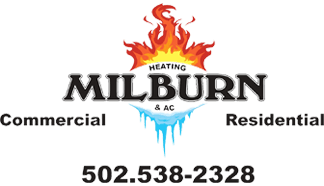High humidity outside and in your building can both influence the cooling capability of your HVAC framework. HVAC specialists suggest a humidity level beneath 60% for your building to be in its best shape, however that can be hard to keep up with as climate conditions change consistently. This short article will sum up the HVAC issues high humidity can cause and the arrangements that will decrease strain on your framework and assist with keeping your energy charges low.
First, let’s discuss the causes of high humidity with air conditioning units:
- Oversized System – A large AC framework makes a lackluster display of controlling both temperature and moistness. That is because its compressor turns on and off too often, so the system never runs sufficiently long to eliminate dampness from the air. You may have to install a smaller capacity AC system to fix this issue.
- Single Speed – An air conditioner that is just equipped for running at one speed—essentially, on or off—can have the same issues as one with the oversized system with regards to HVAC humidity control. When the unit can just run at one speed, it turns on and runs to the max until the air reaches a set temperature. Then, at that point, it stops until the temperature gradually goes over the indoor thermostat limit. That frequently implies the unit doesn’t run reliably enough to eliminate humidity. Consider putting resources into an HVAC framework that highlights variable speeds.
- Negative Air Pressure – Negative air pressure results in a lot of air being vented from your channels. This is typically the aftereffect of an ineffectively planned ventilation framework. When you have a negative pressing factor, the air attempts to adjust itself by attracting more external air in any capacity that it can. So when the relative humidity outside gets into the ’70s, ’80s, or more, all that damp air is being brought into the building. Changes to your ventilation framework configuration might be expected to address this issue and should be done by professionals. Look for them by searching for air conditioner servicing near me.
- Leaving The Fan On – The fan moves air even without the AC running, so you may feel like you’re making some cooling benefit. Yet, you’re aggravating the humidity. You can accidentally blow the dampness your AC has eliminated back into space before it gets an opportunity to deplete away.
How does high humidity affect an Air conditioner?
More older models of air conditioners don’t accompany dehumidifiers like the ones found in modern air conditioning units.
During especially humid summer days, the air conditioner won’t ideally cooling on the rooms. When the indoor humidity level are high, the air conditioning will strain to keep up with the required heat levels inside the house. It will bring about lopsided cooling and increment the mileage of the framework, subsequently requiring AC repairs.
Humidity influences the cooling proficiency since it makes the air warm. The air conditioner will stay at work past 40 hours to create cool air. This will bring about expanded strain on the cooling system. Additionally, high humidity levels inside the home can prompt the development of mold and algae inside the pipes that will extraordinarily decrease the indoor air quality and may bring about hypersensitive reactions.
Look for the best AC repair services near me and get in touch with professionals by calling on (502)538-2328 or email us at [email protected]



